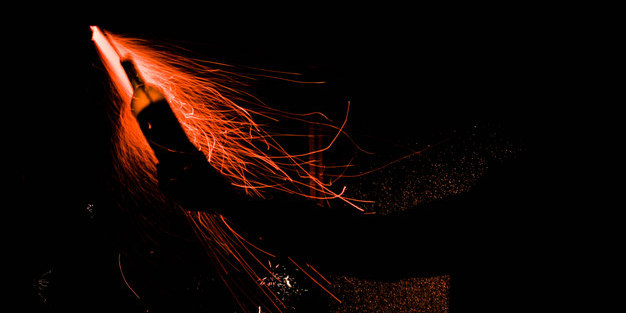Fireworks: Family Fun or Safety Hazard?
Posted in Accident & Injury on June 12, 2015
Fireworks are erupting in Ohio—political fireworks, that is. In recent years, state legislators have been hearing from advocates on both sides of the fireworks debate. Some feel that fireworks are too dangerous, and cite their life-altering impact on consumers, including severe eye injuries, loss of limbs, and even death. Manufacturers, on the other hand, are lobbying to legalize more consumer fireworks in Ohio.
Last year, Danial Peart of Phantom Fireworks in Youngstown, Ohio told lawmakers that legalizing bottle rockets and other consumer-grade fireworks would lead to greater fireworks safety education. “History has shown that with a focused education campaign, legalizing consumer fireworks use actually decreases injuries to the consumer,” he said.
Dr. Gary Smith, director of the center for injury research and policy at Nationwide Children’s Hospital in Columbus, sees things in a very different light. “There is no safe way to use backyard fireworks,” Smith said. “Every type of legally available consumer firework has been associated with serious injury or even death.”
Most Dangerous Fireworks
According to the Consumer Product Safety Commission, 11,400 injuries due to fireworks were treated in U.S. emergency departments in 2013. Of those, more than half occurred in the 30 days surrounding Independence Day. Small fireworks, like bottle rockets, sparklers, and small firecrackers can appear harmless to kids. However, children younger than 15 years of age accounted for nearly half of all fireworks-related injuries.
Sparklers can burn at 2,000 degrees Fahrenheit or hotter. That’s as hot as a blowtorch! In 2013, there were an estimated 2,300 emergency department-treated injuries associated with sparklers
Small firecrackers are especially dangerous to kids, who may try to light the explosives in their hand or relight “duds.” Hand and finger injuries account for 32 percent of all injuries.
Roman candles can cause serious eye injuries, including corneal abrasions.
Bottle rockets may seem like innocent fun, but they can also inflict eye damage and account for 70 percent of injuries to bystanders.
Fireworks Safety Tips
If you do decide to buy legal fireworks, be sure to take the following safety steps:
- Never allow young children to play with or ignite fireworks.
- Avoid buying fireworks that come in brown paper packaging; often, this can be a sign that the fireworks were made for professional displays and could pose a danger to consumers.
- Never have any portion of your body directly over a fireworks device when lighting the fuse.
- Move away to a safe distance immediately after lighting.
- Never try to re-light or pick up fireworks that have not gone off or fully functioned.
- Never point or throw fireworks at another person.
- Keep a bucket of water or a garden hose handy in case of fire or other mishap.
- Light one item at a time, and then move away quickly.
- After fireworks have gone off and fully functioned, douse the spent device with plenty of water from a bucket or hose before discarding, to prevent a trash fire.
- Make sure fireworks are legal in your area before buying or using them.
Ohio Consumer Fireworks Laws
Although you may buy consumer (1.4G) fireworks from a licensed wholesaler or manufacturer, you cannot discharge any consumer fireworks (firecrackers, bottle rockets, etc.) in the State of Ohio. [ORC § 3743.65(B)] You must transport all fireworks purchased in Ohio out of the state within 48 hours of the purchase. The only items that can be used in Ohio are designated “trick and novelty” which smoke, pop, and/or sparkle. [ORC § 3743.80]
Sources:
“Bill legalizing fireworks in Ohio clears Senate panel” by Jackie Borchardt, Cleveland Plain Dealer, December 9, 2014.
“2013 Fireworks Annual Report: Fireworks-Related Deaths, Emergency Department-Treated Injuries, and Enforcement Activities During 2013” by Yongling Tu and Demar V. Granados, U.S. Consumer Product Safety Commission, Washington DC, June 2014.
